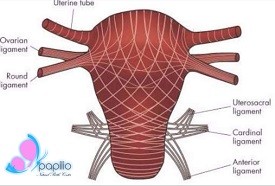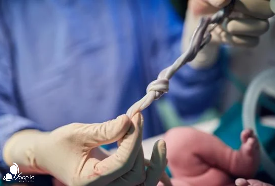How Allah Describes Mother's Womb in the Qur'an

The uterus in the medical perspective is explained to be formed by several layers of muscle that are very strong and are supported by ligaments. But long time ago, when the science had not yet discovered this, Allah already mentioned this in the Qur'an :
"Then We placed him as a sperm-drop in a firm lodging."
Qur'an surah Al Mu'minun verse 13.
When Allah has called it a firm lodging, how do we dare to say it a cervical weakness?
There are several conditions that cause to the term weak uterus among women.
- Recurrent miscarriages. Recurrent miscarriages cannot be determined what is the exact cause. But it often happens due to infection from bacteria or viruses. This can occur when our body's immune condition is imbalance. We need to evaluate our nutritional intake, daily activity, and hygiene lifestyle greatly in order to measure the health conditions. One of these 3 factors often become problems without noticed. So it's not the failure of the Creator that create a cervical weakness. Visit your obstetrician and perform further tests in order to find out the root cause of the recurrent miscarriage.
- Spotting. Spotting during early pregnancy is something physiological (normal). Learn the process of pregnancy during "Nidation", which is the event when a sperm-fertilized egg will implant itself in the uterine wall. The process of self-implantation will affect the expenditure of blood a little from the wall of the uterus that is occupied. Imagine like you are gardening a hoeing soil then there will be a bit of land that splattered out. That is the way natural processes should occur. If there still be spotting during pregnancy entering the second and third trimesters, the most frequent cause is placenta previa. This can be found through an ultrasound examination. If this is the case, then we should wait until delivery. In the mean time, as Muslims, we should pray more often to Allah Almighty who knows everything in the womb so that the placenta can shift before the labor begin. And you must observe the emergency signs of pregnancy which is heavy bleeding. When the placenta is indicated blocking the birth canal, pray only to God. But what about the suggestion of "talking to the fetus" to shift away so that the placenta does not close the birth canal? Let's think logically according to the concept of Islamic religion. If the One who Created the baby and the placenta is Allah, we should ask the Him only. No need to ask fetus and placentas who are not necessarily willing to be asked to, because this is not ordered by Allah.
- Lower abdominal pain. It is also common during pregnancy and is physiological, as long as it is not accompanied by other emergency signs such as heavy bleeding (many, not spotting). The pain that is felt in the second and third trimesters is due to the process of stretching muscles of the uterus and pelvis in order to prepare a place that large enough to be occupied by the growing fetus.
Thus Allah the Creator, He has designed a woman's body in such a way, creating a large place first before it is occupied by one or even more fetus in the womb. Every process during pregnancy is full of extraordinary lessons that need to be captured. What happen this and that, why is there such a condition, why is there pain, why is pain still considered normal, what is the purpose of the pain, and so on. If we always measure and analyze from the perspective of the Shari'a, then we will endlessly say:
Ma sha Allahu la quwwata illa billah.
Indeed, Allah is the Greatest with all His creation.




